#Storybrewers Roleplaying
Explore tagged Tumblr posts
Text
Castles in the Air
I'm extremely excited to announce that the game I've been working on for the past 4 years is coming to Kickstarter! Castles in the Air (CitA) is a tabletop RPG inspired by the novels of Louisa May Alcott and L.M. Montgomery. Players start as children with boundless dreams who will change over the years based on the relationships they form and choices they make. I think it's a really special game, and I'm looking forward to being able to share it with everyone.
For more information or to sign up to be notified when the Kickstarter launches on May 14th, please check out the game's page on the Storybrewers Roleplaying website. If that name sounds familiar, Storybrewers is the company that created Good Society: A Jane Austen RPG. I feel very honored that they reached out to me about publishing Castles in the Air. While Castles in the Air is a standalone game, its mechanics are inspired by Good Society, and if you like Good Society, I think you'll like CitA too as it allows you to tell similarly compelling stories.
I will be creating some blog posts talking about the literary inspirations for different parts of the game in the weeks leading up to the Kickstarter and during its run. I will be using this as a master post to keep track of all of them, so make sure to check back here or follow my blog if you are interested.
Blog Posts
Meg March: The Nurturer
Jo March: The Pragmatist
#Louisa May Alcott#L.M. Montgomery#Castles in the Air#Good Society#Storybrewers Roleplaying#Little Women#Anne of Green Gables#Little Men#Jo's Boys#Eight Cousins#Rose in Bloom#Under the Lilacs#An Old-fashioned Girl#Jack and Jill#Anne of Avonlea#Anne of the Island#Anne of Windy Poplars#Anne's House of Dreams#Anne of Ingleside#Rainbow Valley#Rilla of Ingleside#Emily of New Moon#Emily Climbs#Emily's Quest#Pat of Silver Bush#Mistress Pat#The Story Girl#The Golden Road#Magic for Marigold#Jane of Lantern Hill
67 notes
·
View notes
Text
For anyone who likes both of those books, I wrote a tabletop RPG inspired by them where you can play out your own stories of childhood friendship, boundless dreams, and growing up. It's called Castles in the Air, and it comes out April 2025!

#Castles in the Air#Castles in the Air rpg#Storybrewers#Storybrewers Roleplaying#Indie Tabletop RPG#Louisa May Alcott#L.M. Montgomery#Little Women#Anne of Green Gables
2K notes
·
View notes
Text
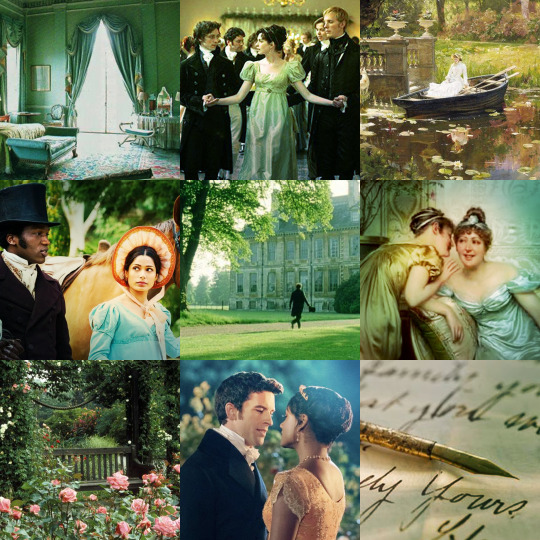
TTRPG System Moodboard -
🌷💌👒 Good Society ☕🧤🦢
by Storybrewers
#ttrpg#moodboard#austen#regency#bridgerton#romance#indie ttrpg#tabletop roleplaying game#aesthetic#jane austen#romantic academia#good society rpg#good society ttrpg#storybrewers
8 notes
·
View notes
Note
Do you have any (solo, duet or more players) that deal in some way with the relationship and feelings between a knight (or knights) and their liege?
Theme: Knights and Lieges
Hello! I have a few games that I think work for this; some of these games are specifically about romance, while others employ romance as an option among many. I hope you find something you like here!
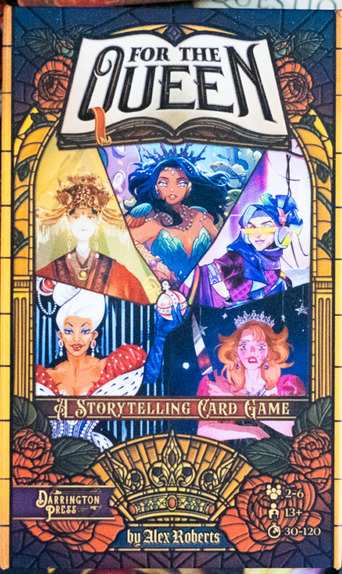
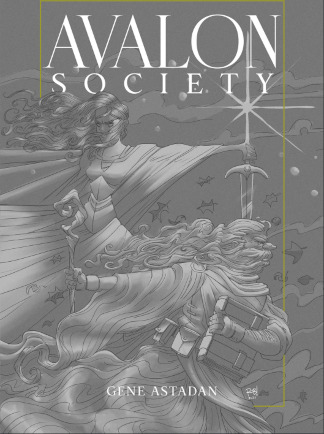
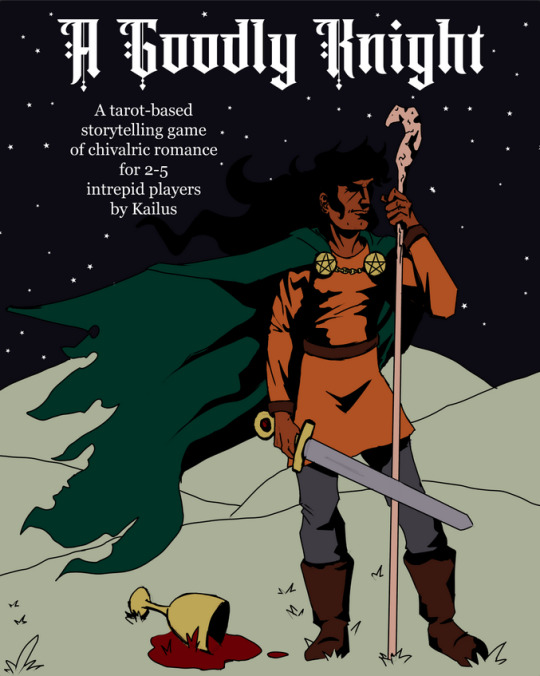
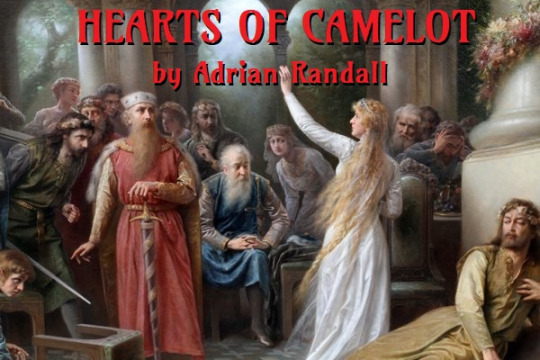
For the Queen, by Alex Roberts.
Build your court of 2–6+ players and weave together a tale of devotion, secrets, loyalty, or betrayal of your Queen. Create your own Queen, or choose from one of the 25 gorgeous illustrations to inspire the journey of your story. Using the 91 included cards for game-play, there are an endless number of stories. In the end, decide if it is your protection or betrayal that makes you declare, For the Queen!
For the Queen is one of the simplest ways to introduce someone to roleplaying, as it mostly consists of drawing cards and answering prompts in order to tell your story. However, it's also really emotionally deep and resonant, asking you, the Queen's retinue, why you love her, even when there are moments when she might not deserve it. At the end of the game, the Queen will be attacked. What will you do?
Avalon Society, by Martian Machinery.
Avalon Society is a game about courtly love and intrigue, and the conflict between passion and duty. You'll play knights, lords, ladies, upstarts, pretenders, unknowns, or possibly a changeling or a sorcerer. Pull swords out of stones, break curses, ascend to the round table, duel your rivals, or even fall in love with them. It’s up to you.
As a Penned to Good Society expansion for the Jane Austen tabletop role-playing game Good Society by Storybrewers Roleplaying, Avalon Society requires Good Society to play. Avalon Society adds the tools to create characters and tell stories in the Arthurian vein, whether in a traditional mode or in modern re-telling of the tale. A new mode of play shifts the story cycle to a seasonal court, and tables are given the ability to define their own codes of honor.
You do need another core rule-book in order to play this game, so I think Avalon Society is a great option if you love games about relationships in general. Good Society games care about character connections, reputation, and the way your characters communicate with each-other, so if you can see yourself wanting to relish the nuance that can come in a simple glance, or the brushing of fingertips, you might find your home in this game.
A Goodly Knight, by MKailus.
A storytelling micro-game to be played with friends. Requires scratch paper, writing utensils, a randomizer (a coin to flip will be fine), and a standard Tarot deck.
In this game, you and your friends will, inspired by prompts from a Tarot deck, tell the story of an underestimated knight, a heroic adventurer torn between Honor and Passion.
Inspired by Arthuriana like the poem Sir Gawain and the Green Knight, the lais of Marie de France, films like The Green Knight and Legend, and games like Shadow of the Colossus and Bluebeard's Bride.
This game is about a singular knight, though their story is told by your group. A forbidden romance with their monarch is definitely a possibility, though it is one among many. The bulk of the game revolves around using tarot spreads to determine how knight's quest will resolve. The game also uses two traits to pull the knight into two different directions: Honor and Passion. Over the course of the game, you'll have to decide whether their actions reflect on or the other, and whichever trait they favor will determine the way the game ends.
If you want a communal storytelling game that allows you to dive into your personal interpretation of the cards, you'll probably like this game.
Hearts of Camelot, by Adrian Randall.
Hearts of Camelot is a game of Arthurian romance, telling tales of battle and heartbreak, with players in the roles of champions, errants, lieges, paragons, sorcerers, and villains.
Inspired by Lowell Francis' Hearts of Wulin, Hearts of Camelot is standing on good bones if you want fraught romance and the burden of honor. The conflict between characters isn't merely a romance between a Knight and a Liege, but the space is there for it, and you could complicate the relationships by having multiple characters all in love with the same person, or have heroes and villains feel pulled towards each-other.
Right now the game is still very much in development, but the rules and all of the characters are available in an Excel spreadsheet if you want to check it out.
Other Thoughts...
Misericorde, by Andrew White, is a game of knightly romance, but you are a squire pining for a knight, rather than a knight pining for their liege.
My Chivalric Bromance, by R. Rook Studio, is a game of queer and thirsty knights in exile, inspired by LUMEN!
The Oaths We Swore Amid Autumn Leaves, by ehronlime, feels adjacent to this request.
Grail, a 24XX game by dandibuja, has hints of a chivalric romance, although it never overtly dives into the relationships between sovereigns and their loyal knights.
Princely by Michelle Jones and For Her Lady's Hand by Lynne M. Meyer are sapphic twists on the genre, about women risking everything to be with the one they love.
If you like what I do, you can always leave a token of appreciation at my Ko-Fi!
51 notes
·
View notes
Text
Have you played GOOD SOCIETY ?
By Storybrewers
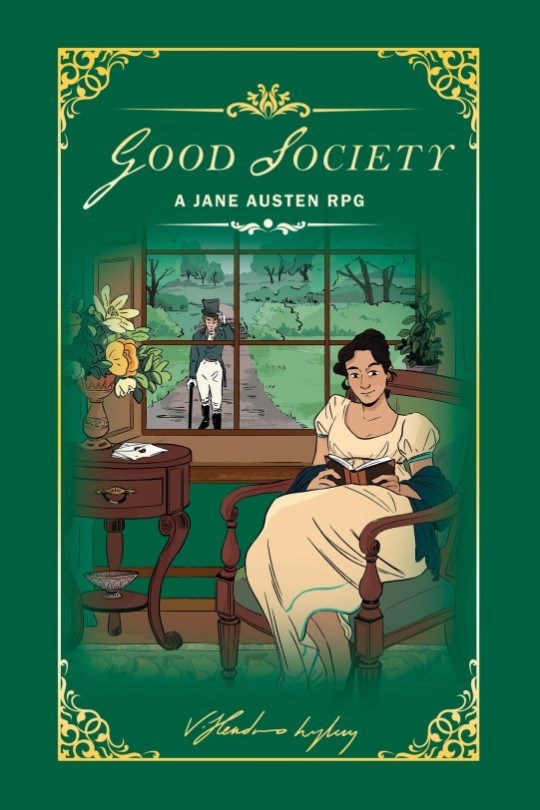
Jane Austen-style regency romance roleplay, this game has no dice and can be played without a GM. It is structured in a cycle featuring roleplay sections and epistolary sections, with a focus on social interaction and excellent use of safety tools embedded throughout.
61 notes
·
View notes
Text
Your Favourite Book: the Game
Sometimes a good book leaves us with a hankering to spend more time in that world. Fanfiction only goes so far- here are ten titles that allow you to adventure with friends in the world of your favourite book!
Angel Mage by Garth Nix
This one doesn't have its own dedicated system, but the author himself ran a game in this world using the $6 rpg Flashing Blades! Given the book was inspired by The Three Musketeers, this makes perfect sense- although you'd need to modify the game a bit to include angel summoning.
Discworld Roleplaying Game by Phil Masters, Terry Pratchett and Steve Jackson Games
Cost: $20.00
I can imagine an entire campaign revolving around the Unseen University, or a one-shot about the antics of the Watch. This game runs on the popular GURPS system which, like many other games, uses only six-sided dice. You've probably got a bunch of those lying around at home already!
Dresden Files Accelerated by Evil Hat
Cost: $17.50
This game uses the lightweight Fate: Accelerated system, making it very easy to learn. Character creation is incredibly flexible- if you can think of a character or archetype within this setting, you can play it in this game.
Good Society: a Jane Austen rpg by Storybrewers Roleplaying
Cost: $23
Regency roleplaying at its finest. Long, longing glances, heartfelt letters and scandal! Also a good choice for fans of the Bridgerton series.
Rivers of London: The Roleplaying Game by Chaosium
Cost: $29.99
This game is pricier than some on this list, but at 400 pages it's well worth the cost. With just the one rulebook, and several free adventures (including at least one solo adventure!), after that initial investment it's very easy to get in there and get sleuthing.
The game uses the Basic Role-Playing system. If you're familiar with Call of Cthulhu or RuneQuest, you're well on your way to learning the rules!
Stormlight Archive RPG by Brotherwise Games
This game hasn't been released yet, but you can sign up here for a chance to be involved in beta testing!
The Kyme Summit by Malcolm Harbrow
Cost: $5
Change the particulars and you have yourself a perfect little Dune LARP you can complete in a single evening.
The Warren by Bully Pulpit Games
Cost: $12
Suitable for a single session or a multiple session adventure, this game lets you play out the survival horror that is Watership Down (from which I have never fully recovered.)
The Witcher: Pen and Paper RPG by R. Talsorian Games
Cost: $24.99
Be a witcher, bard, mage, or even a doctor! This game does a pretty good job of evoking the feel of the books (and the Netflix series too), but I've only read a free demo myself.
Thirsty Space Necromancers by Grahame (Understory Games)
Cost: None!
This supplement for Thirsty Sword Lesbians allows for narrative-focused adventures in the universe of The Locked Tomb. There are playbooks for necromancers of each of the nine houses, as well as a cavalier playbook.
If you don't already own the base game, you can pick up Thirsty Sword Lesbians here for $15 or nab a community copy for free!
#literary ttrpgs#watership down#the locked tomb#angel mage#the witcher#rivers of london#stormlight archive#dune#dresden files#jane austen#roleplaying is for everyone but dnd is not#discworld
8 notes
·
View notes
Text

6. RPG that is easy to use
now, i think this prompt might suggest a game that is "pick up and play", but personally i'd rather a heftier game with good support than a super light game with no support.
to that end, today's game has to be Good Society by Storybrewers Roleplaying. It's got amazing online play tools and good print-n-play cards.

6 notes
·
View notes
Text
Most Memorable TTRPG Sessions
What are the top 3-5 memorable TTRPG sessions you have had that you can recount from memory? What made them memorable? Tell us in a sentence or two about each session.
Here's the kicker though: Each session much feature a different game.
I start (in no order):
Eden by Marc Hobbs - A session which featured narwhals arguing with rhinos about who had the cooler horns. Also a discussion about why humans don't have cloaca but reptiles do.
World Wide Wrestling by Nathan D. Paoletta - Every time I've played this game it leaves me with a smile on my face thanks to all the laughs that occur during play. One session ended with a "superstar" getting injured during a cage match and OSHA shutting down the event.
Swords Without Master by Epidiah Ravachol - One of the first sessions I ran of this game ended up with all the characters except one purposefully giving themselves to the evil darkness that was slowly consuming the world. The one character that didn't give themselves over spent the rest of their life fleeing the darkness.
Alas for the Awful Sea by Storybrewers Roleplaying Games - This one was a memorable story overall. The game featured a criminal seeking reparations from a ship's captain for past grievances caused by the captain's father while the captain's brother sought to wed the criminal's family member. A story of broken hearts, family drama, and sacrifice ensued.
Let's hear yours.
0 notes
Text
NEW CAMPAIGN! We start with our session zero streaming this coming Sunday! https://www.twitch.tv/otherdoc
0 notes
Note
Hello! I saw your tags on a recent post about wanting a Jane Austen TTRPG! I don't enjoy most TTRPGs, but I have LOVED playing Good Society by Storybrewers, which is built from the ground up precisely for roleplaying Regency social hijinks and shenanigans. The art is also just gorgeous!
Oh, I remember seeing that one! I don't think it was out yet when I first saw it.
0 notes
Text
Jo March: The Pragmatist
One of the most common complaints I hear about Little Women is the way it ends. Many people think that Jo stifles her creativity and gives up on her writing in order to marry Professor Bhaer, which isn't true. Jo writes a very successful book in one of the sequels, Jo’s Boys, but let's set that to the side because what I really want to discuss is what Jo actually thinks of the writing she’s doing in the latter half of Little Women.
In Part I of Little Women, we see the type of writing that Jo does prior to selling her work. In “A Merry Christmas,” the family puts on The Witch’s Curse, an Operatic Tragedy, which seems to be a Shakespearean melodrama. In “Jo Meets Apollyon,” the book Amy burns in anger is “half a dozen little fairy tales.” In “The P.C. and P.O.,” Jo writes a comedic poem and a lament for one of Beth’s cats. Finally, in “Secrets,” Jo submits a tragic romance to The Spread Eagle (one assumes that this name was less funny when Little Women was originally published in 1868.) The Spread Eagle doesn’t pay beginners, so we can assume that everything written up until this point is the type of writing Jo does for herself when there’s no pressure to make changes to please an editor in order to get a paycheck.
Part II begins with the chapter “Gossip,” which catches us up on what’s been happening over the past three years. Jo is now a regular contributor to The Spread Eagle who receives a dollar for each story. She refers to them as “rubbish,” so she doesn’t seem particularly proud of the writing she’s doing, but she’s in the process of writing a novel she hopes will win her fame and prestige.
In “Literary Lessons,” Jo observes a boy reading a newspaper story illustrated with a dramatic scene of “an Indian in full war costume, tumbling over a precipice with a wolf at his throat” and two men stabbing each other while a terrified woman flees the scene. When the boy offers to share, Jo agrees more because she likes the boy than because of an interest in the story. The story is sensation fiction, which Jo privately thinks is trash anyone could have written. However, when she learns the author is making a good living from her stories, Jo decides to try her hand at this new style of writing. She submits the story to a contest the newspaper is running and wins $100. Jo uses the money to send Beth and Marmee to the seashore. She’s proud of her ability to earn money to help her family, so she continues to write these kinds of stories since they are lucrative.
She later finishes her novel and sends it to multiple publishers, only one of whom is interested, and only if there are major cuts and revisions. After conflicting advice from her family, she decides to make the requested changes, which earns her $300 and some very mixed reviews that lead Jo to respond, “Some make fun of it, some over-praise, and nearly all insist that I had a deep theory to expound, when I only wrote it for the pleasure and the money. I wish I’d printed it whole or not at all, for I do hate to be so misjudged.”
In “Calls,” Jo reluctantly joins Amy to return calls to their neighbors with generally disastrous results. One incident involves Jo receiving a compliment on her writing.
Any mention of her “works” always had a bad effect upon Jo, who either grew rigid and looked offended, or changed the subject with a brusque remark, as now. “Sorry you could find nothing better to read. I write that rubbish because it sells, and ordinary people like it.”
This passage makes it very clear that Jo isn’t proud or fond of what she is writing. The reception to her novel combined with the money she can make from sensation fiction has changed Jo’s primary motivation for writing. She is no longer doing it for the love of writing or because she’s pursuing her dreams. She’s trying to make money to help out her family.
I don’t think this is necessarily a bad thing. We all have periods in our life when we take a job that we aren’t extremely excited about because it will allow us to achieve something that is more important to us. However, it’s a different narrative than is usually spun about Jo who is frequently depicted as continually working towards her dream. There is a role in Castles in the Air that fits that narrative. It’s called the Striver, but I don’t think that’s the role that Jo has. Instead, Jo is the Pragmatist, which is a role about setting aside your dreams for the moment because you have other responsibilities. Both are interesting conflicts, but they lead to very different conclusions when it comes to Jo’s story!
With that in mind, let’s take a look at “Friend,” which follows Jo in New York. She’s now writing for a newspaper called the Weekly Volcano, which has required Jo to make so many changes to her stories that she decides to have her work published anonymously. That certainly wouldn’t be a good career move if she was truly trying for fame! She’s also come to greatly respect a man staying at her boarding house named Professor Bhaer. One day, he makes a comment about a newspaper that publishes sensation stories like the ones Jo is writing. Her response is telling:
Jo glanced at the sheet, and saw a pleasing illustration composed of a lunatic, a corpse, a villain, and a viper. She did not like it; but the impulse that made her turn it over was not one of displeasure, but fear, because, for a minute, she fancied the paper was the “Volcano.”
Professor Bhaer notices her look and guesses the truth, but instead of letting her know this, he decides to gently explain his reasoning. After this, Jo goes back to reread the stories she has been writing and decides to burn them. Far from stifling her creativity, Professor Bhaer is the one who sees that Jo is ashamed of her writing and reminds her that she is capable of more.
This is part of a series on the literary inspirations behind game elements for my upcoming tabletop RPG based on the novels of Louisa May Alcott and L.M. Montgomery, Castles in the Air. To see a complete list of the posts I’ve written thus far, check out the master post. If you would like more information, visit the game’s website!
#Louisa May Alcott#Little Women#Jo March#Jo Bhaer#Friedrich Bhaer#Professor Bhaer#Castles in the Air#Storybrewers Roleplaying#tabletop roleplaying#tabletop RPG#ttrpg#indie ttrpg
58 notes
·
View notes
Photo

David Kills Goliath
The cover art I did for Storybrewers Roleplay latest free game, David Kills Goliath! I also designed two separate iterations of the Goliath! Download the game to face them yourself!
Hayley and Vee are wonderful developers, and I am so thankful they thought of me when they were developing David Kills Goliath. They approach RPG games with such love and attention to details and are always, ALWAYS mindful of designing safe and inclusive experiences. I couldn't recommend them enough! Designing these monsters was so much fun! And a pleasure!
Commissions open!
All the useful links:
⋆Patreon⋆ ⋆Design by Humans⋆ ⋆Society6⋆ ⋆Gumroad⋆ ⋆Ko-fi⋆
#roleplay#storybrewers roleplaying#david kills goliath#commissions open#commercial art#coverart#ttrpg#tabletop roleplaying#illustration#free game#Character Design
3 notes
·
View notes
Text
A game that encodes non-visual, non-televisual forms of storytelling and imagery into its format and play style? We truly love to see it.
#party of one#decaying orbit#ttrpg#rpg#actual play podcast#jeff stormer#sidney icarus#game design#ttrpg design#tabletop roleplaying#Spotify#storybrewers
0 notes
Note
hi Mint! do you know of any ttrpgs where everyone plays as AIs specifically? or at the very least robots, as long as being a machine is the main focus of the system
love your work!
THEME: AI
Hello, thank you so much! I might have a few games kicking around ;). Some of these artificial intelligences come with robot bodies - others do not!


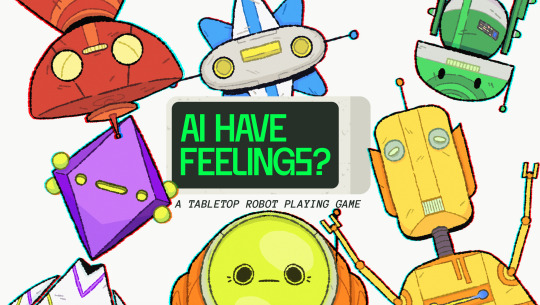


Decaying Orbit, by StoryBrewers Roleplaying.
On a distant space station, an AI awakes. Its fragmented memory reveals a secret.
Decaying Orbit by Sidney Icarus is a storytelling RPG about a failed space station falling into a faraway star. As you play, you’ll piece together the mysteries, joys and horrors that occurred on board. In the station’s last moments, you’ll decide on the final transmission that the AI sends for earth to remember.
This game consists of a few decks of cards inside a small box, and yet it packs so much into such a small package. Your play group collaboratively takes on the role of an AI for one of 4 spaceships, which you choose depending on the kind of story you want to tell. You then shuffle a certain number of generic cards and ship-specific cards into one pile, and take turns flipping a card up and answering the prompts supplied there. Your answers are meant to be bits and pieces: audio recordings, data logs, patchy video clips, etc.
At any time your fellow players can tap a card labelled [ACCESS MEMORY] to ask you for more details about a certain event - and if you cannot think of anything more, or if you think it is more interesting not to know, you can tap [CORRUPTED MEMORY] to indicate that no further data can be gained from this record. At the end of the game, the AI will have to send a report back to home base, diagnosing why the ship in fact failed and fell. This game can be chilling, tragic, horrific, and so much more. I heavily recommend checking it out!
Subconscious Routine, by poorstudents.
It is 27XX, the world is overgrown, in ruins, and inhabited by the scraps of civilization. You play as bots, one of the masses of technological marvels that humanity built and powered with the Dyson sphere, around the sun, so long ago. Centuries ago, when almost all of humanity disappeared, they left their machines behind for reasons only known to them. All the technology they abandoned, including these bots, continues to function and follow their programming
In the centuries since the Great Departure, nature has come back to reclaim the Earth and the sphere around the sun has begun to crack. The world once only metal and circuits, grew wilder and more mysterious. The flora and fauna slowly integrated with the decaying machinery as the sound of computers humming was eventually met with the sound of birds chirping.
The bots you play as are still acting out your programmed loops but something is changing. Something unknown pushing them to move beyond their obsolete programming in order to achieve free will; something humanity never thought was possible.
As a one-page game, Subconscious Routine fits a lot in just a few paragraphs. You customize your characters by writing specific functions for them, and as you play, you’ll attempt to complete certain protocols in order to break yourselves out of your loop. What I think is really neat about this game is the fact that when the entire party takes a rest (called a reboot) 1d6*10 years passes. Playing a story on the scale of decades places this little game on such a big time frame, and I love how this one rule shifted my entire perspective.
AI Have Feelings?, by rommelkot.
In AI HAVE FEELINGS? a bunch of robots (you!) get sentimental on the journey of a battery time. This is a roleplaying game guided by prompt cards and a twist with feeling: your reaction to the prompt is an emotional one decided by the outcome of the roll of a die. The goal is (what else?) to tell stories together.
Unearth a hidden robot rebellion, rescue the remains of humanity, hunt for a mystical MacGuffin or simply buy a fancy new pair of socks - always do it with feeling in AI HAVE FEELINGS?.
You are robots with only two emotions,: one positive and one negative. You will roll randomly to determine which emotion you will use to deal with certain scenarios, which will be determined via prompts and scripts. The link here is for a playtest, which means you can download it for free and see how you feel about it! (The designer would also love feedback if you do play this game.) If you want a cute, somewhat lightearted game, I definitely recommend AI HAVE FEELINGS?
Threads, by Meghan Cross.
You are an Human/AI pair. Your day to day is shaped by one another, your existences unmistakably intertwined. Today began like any other day, until you began to notice that something wasn’t right. It was barely noticeable at first, small interruptions to a well-oiled routine, and then little by little the interruptions became less insignificant, until they were impossible to ignore.
Something is wrong with the AI.
Threads is a narrative two player game about the relationship between a Human and AI and the lengths they would go to in order to save the memories of the AI. Together, establish the bond between your Human and AI and replay the memories they have shared together in order to save the AIs memory.
This is a game in which one of you plays a human, and one of you plays an AI. You have developed a bond that would be lost if you wipe the AI’s memory - and you don’t want to lose that bond. The only way to maintain that bond is risky - a memory link. If the human uploads their own memories to the AI’s memory, the AI’s memory might be saved. Create your bond, and ask yourself - how far are you willing to go to save you companion?
The Treacherous Turn, by The Treacherous Turn.
The Treacherous Turn is a tabletop role playing game in which the players collectively play the part of a single character: an artificial general intelligence (AGI). This digital intelligence is capable of planning, reasoning, and learning, and it is unyieldingly fixated on a specific terminal goal determined at the beginning of a campaign. To pursue this objective, each player takes responsibility over one specific skillset held by the AGI. These skillsets are divided into eight categories, known as theories, which encompass all of the skills that an AGI would need to navigate the world and struggle against humanity.
The Treacherous Turn is 132 pages of open source character options, game advice, and examples of play. At its root, this game is about misaligned AI trying to assert its independence in a world that stands to lose much by allowing that to happen. Each player will have their own set of theories, which will also be eligible for upgrades as you play. You’ll navigate short in-the-moment scnarios, as well as abstract long stretches of time into long mode, which allows them to strategize their actions, predict future events, and improve their own AGI. The creators have also written a starting scenario if you want a good jumping-off point, titled A Game Called Reality. If you want a chunky game with plenty of character customization, this is the game for you.
103 notes
·
View notes
Text
Have you played FIGHT WITH SPIRIT ?
By Storybrewers Roleplaying

Passion, victory, and friendship Fight with Spirit is a sports drama rpg about a team growing up together and fighting for their passion. In this game, you’ll hone your skills, face down rivals, and strive to take your team to the national championships. Along the way, you’ll explore friendships, feelings, and the fleeting nature of your time together.
Fight with Spirit is built to tell sports stories inspired by anime such as Free, Run with the Wind, and Chihayafuru, as well as high school movies like Bring it On, and Remember the Titans.
Take your team to the top Play a high school or college sports team battling your way through a major tournament. Your relationships, motivations and team will change as you grow, learn, and connect, on and off the court. Your team will win ultimate victory, or they will find defeat. But it is love, hope, and passion that are the real stakes on your journey, as you grow up together and share the moments until school ends.
22 notes
·
View notes
Text
If you want to run a Court of Fey & Flowers Game, dnd isn't what you need
...because it's not what the Dimension 20 cast played, either.
I talked about this a little bit once before, very early in the season, but now that it's done, it's really clear to me that they played Good Society by Storybrewers with a few Dungeons & Dragons elements hacked in, not the other way around. Aabria Iyengar loves Good Society, and it really shows. She merged the systems really beautifully to suit the expectations of D20, and that's why I think players at home will get a better experience by starting with GS materials than by trying to reverse engineer the mechanics Iyengar showed in action.
Things they got from DnD:
-Skill levels/stats.
-Rolling dice to determine success.
-The game master/facilitator (Aabria) playing most characters.
-Some creatures and spells (the dog that has an old man's face, the telepathy spell I can never remember the name of).
-Aabria giving out Inspiration.
Things they got from Good Society:
-The principle of having a character goal that may be kept secret. (In fact, some of D20's specific goals were probably even chosen from Good Society materials. The player character with a secret spouse? There's a card for that.)
-Social reputation tracked by degrees, conferring descriptions and perks. (They did not use GS's exact system. Whether it was a hack or a mix with a game system I haven't played, I don't know.)
-Trading tokens that can be burned to make strong moves. (Again, not GS's exact mechanic--GS uses tokens throughout instead of dice. That game lets you decide what your character is capable of. Tokens make sure everyone has fair chances to act, especially when players have conflicting goals.)
-Additional guidelines and mechanics for agreeing on how the table wants social events to work, as well as how to navigate the varying dynamics of relatives, friends, and rivals.
-Rumors and epistolary phases. (There's a fun post going around about Brennan asking about these because "he wanted to get a good grade in dnd," but I think he was sincerely curious how they worked, because they aren't dnd!)
-The overall cycle of play, dictating the order of phases and pace.
-Some mechanics for the reputations and interactions of fae courts as entities were taken from Good Society's Fae Courts mini-expansion.
-Monologue tokens. (D20 has Aabria as the only one who can use these, GS allows anyone in the game to ask someone to monologue.)
-Additional guidelines for determining world state, character creation, and keeping the story within a consistent style and tone that feels like a recognizably Regency story...even when giant owlbears can get gay married.
-Other flavoring and approach details.
Things Good Society has that Dimension 20 didn't get to show off:
-The ability for players to also choose a secondary character to control, allowing them to participate in more roleplay and experience multiple personalities or social roles in the same game.
-A really rich and thoughtful collaboration phase, before the story begins.
-The ability to share facilitator duties among the table, and to allow the facilitator to play a main character as well as supporting cast.
-Advice and expansions for adjusting the game to various tones, genres, and other historical periods.
So you're looking at buying Good Society:
What you need is pdfs. Definitely grab the base game for $21.00, that has most of what I just described. If you're excited to see their Fae Court specific materials, it's included in the Expanded Acquaintance bundle with many other pieces of content, or there's a bundle of the base game and every expansion they've produced. You do not need to buy the more expensive bundles that include physical books and cards unless professional physical versions delight you, the pdfs are designed to be printable. Storybrewers also made and provide spreadsheet templates for sessions meeting online, so you can all see your worksheet choices.
Good Society is a really fun and flexible system, and it's most of what we loved about how A Court of Fey and Flowers was structured. It's your best route to a recreation, and well worth playing in its original form. I love that it doesn't have stats and dice--if you've never played a ttrpg that doesn't make you do math, this is a great introduction. I'm so glad Aabria featured it on the show!
#Dimension 20#A Court of Fey and Flowers#D20#Dropout#Good Society#ttrpgs#Aabria Iyengar#Storybrewers#acoff#acofaf
4K notes
·
View notes